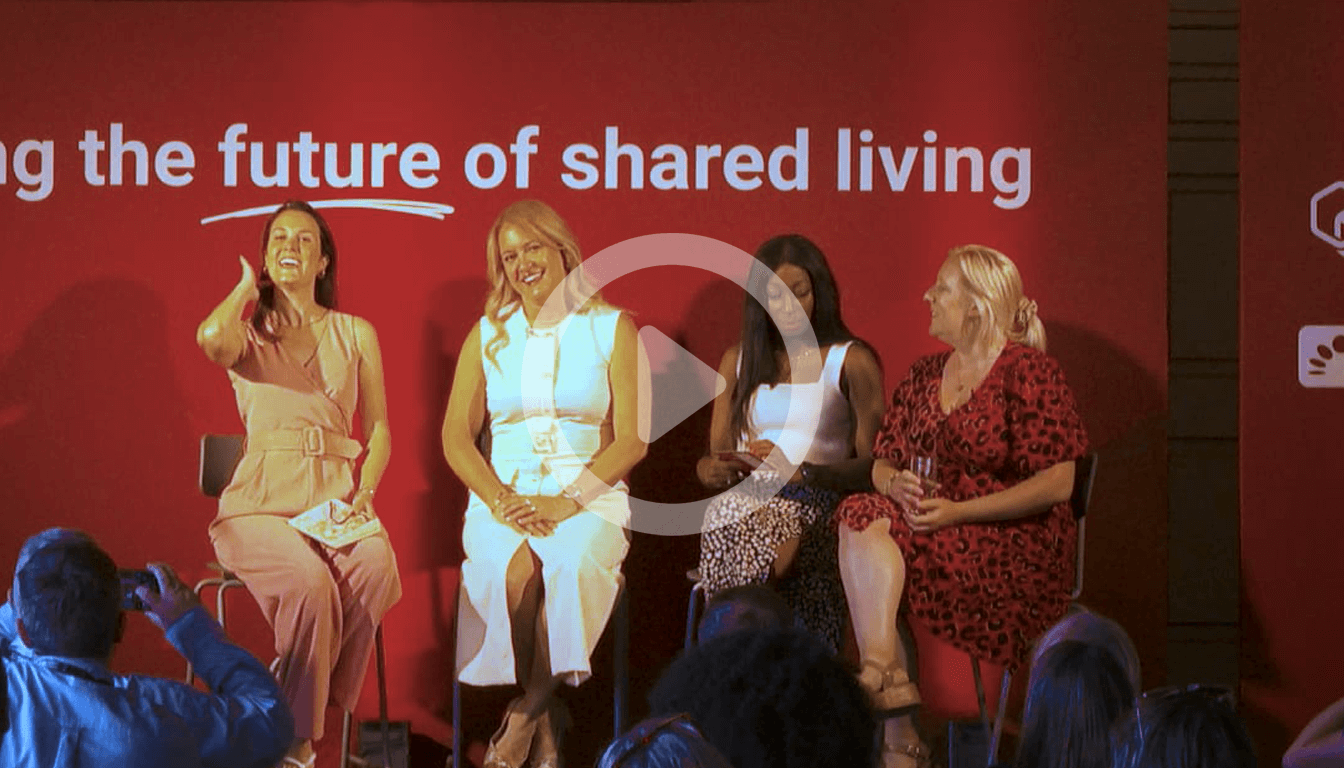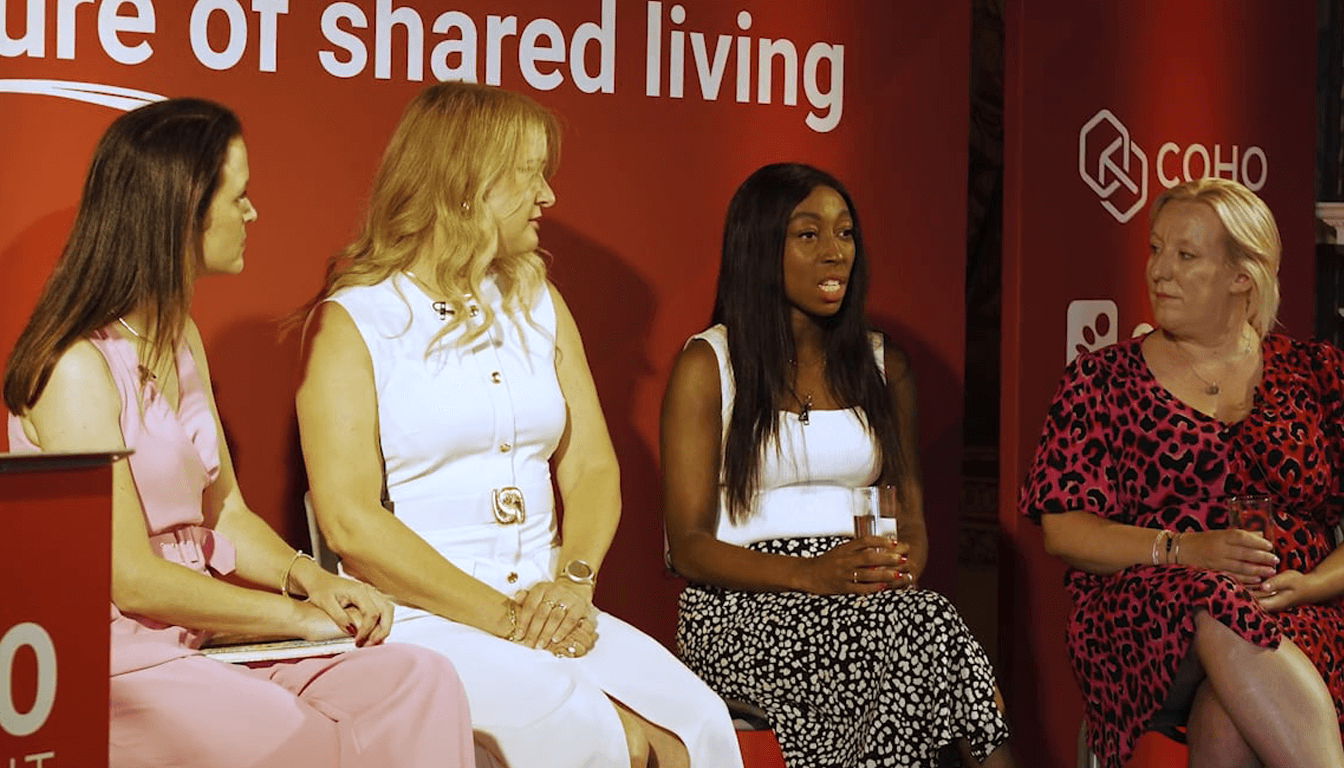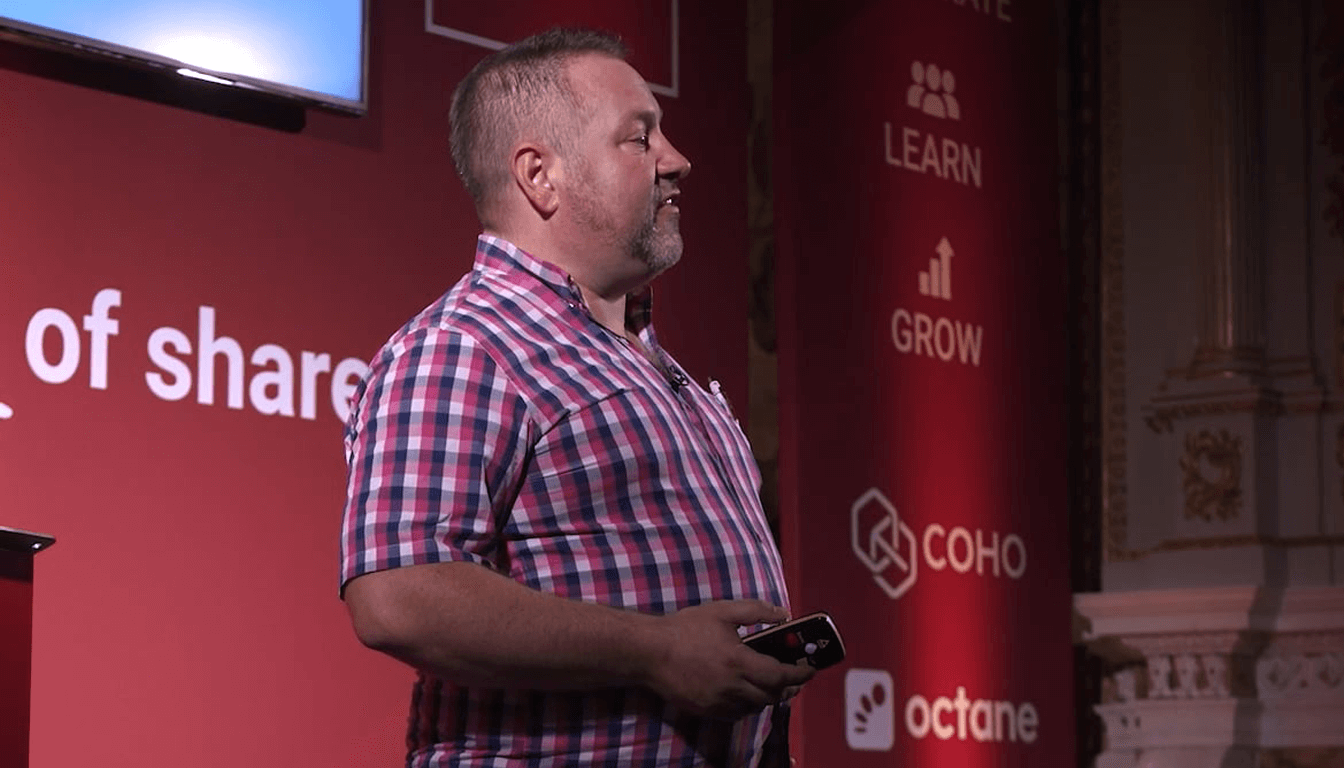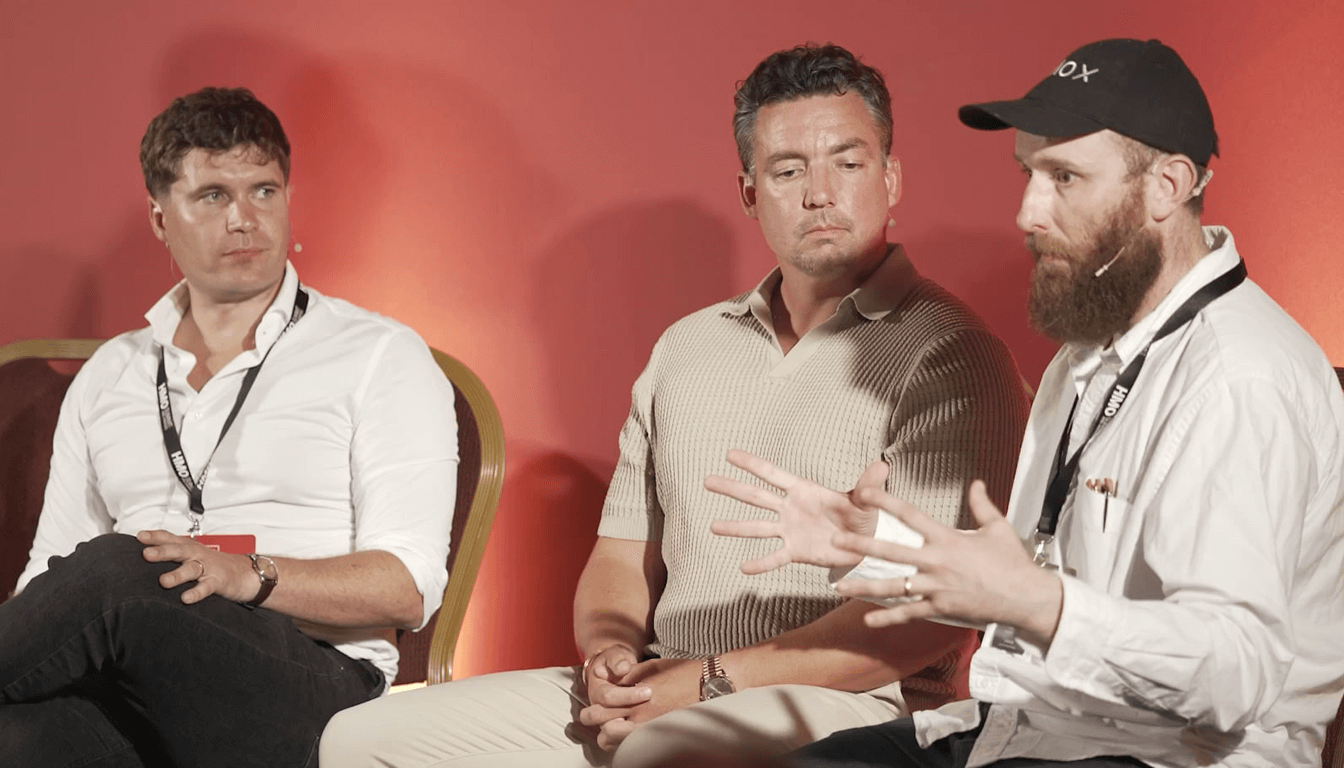When the curtain went up on the first-ever Girls in Property panel at the HMO Summit 2025, the room didn’t get polished soundbites about fast riches. Instead, three women,Celia Seale from Liverpool, Kim Opshauer of Como Properties, and Sophie, a rent-to-rent operator from Southampton and Bournemouth,opened the door on the unglamorous, brilliant, exhausting reality of running HMOs. They spoke candidly about why they started, how their lives changed, the first hires that saved their businesses, the cautious but creative ways they use AI, and the disasters that taught them the most. This is the long-form telling of that conversation: the stories, the context, and the practical lessons you can apply whether you’re signing your first tenancy agreement or managing a 70-unit portfolio.
Why the human story matters more than headlines
The operators onstage shared one recurring insight: HMOs are not primarily a property problem,they are a people problem wrapped in property. The financial models, the refurb timelines, the yields all matter, but the day-to-day work is about relationships: with tenants, neighbours, contractors, and local authorities. Celia’s decision to leave teaching was not because she loved drilling into yield curves; it was because she wanted the autonomy to care for her mother and be present in ways her school job wouldn’t allow. Sophie’s scaling came from trusting her network to do heavy lifting during a frantic turnaround week. Kim’s planning victory,winning committee approval against 190 neighbour objections,was less a technical win than a social one: the ability to build a defence and calm fears through a clear management plan.
That human dimension explains why so many moments that look like operational failures are really tests of relationship design. A neighbour’s complaint can be defused by a clear contact plan; a tenant in crisis requires empathy before policy; a bad contractor relationship is often a hiring-and-onboarding failure, not an inevitable nuisance. Treating HMOs as people-first businesses reframes priorities: you invest in communications, onboarding, and trusted human judgment the same way you’d invest in insulation or new windows.
The moment you know you must hire,and who to hire first
All three guests told a version of the same story: “I thought I could do everything myself, until the business outpaced what I could physically and mentally manage.” Many startups imagine they’ll “save money” by doing admin, fixing, and filling rooms themselves. In practice, that DIY approach often slows revenue, creates burnout, and leaves opportunities unrealised.
Early in their journeys, these women found the same trio of priorities: clarity in admin, reliability in trades, and someone on the ground who can make decisions. A virtual assistant saved Kim and others from being buried by tenancy paperwork and repetitive tenant queries. Reliable contractors shortened the time to let after refurb,because every day without a tenant is a losing day. And a part-time operations lead or master key holder was the difference between a manageable emergency and a six-hour founder meltdown.
Hiring can feel like an expense until you see it as an investment in speed and capacity. The trick, as Sophie described, is to bring people in “bit by bit”,start with a trusted person who can take one major responsibility, measure the outcomes, and expand that role. When the founder can spend less time firefighting and more time building relationships with agents and sellers, the pipeline grows faster than the personal stress does.
AI and systems: useful tools, limited judgment
The panelists use AI tools every day,ChatGPT to draft tenant communications, Fathom to capture meeting notes and action items, Perplexity for idea research. AI accelerates the boring, repetitive tasks that eat founder time and it helps you go into a solicitor meeting with better questions. But every speaker drew a bright line: AI does not replace the human judgment at the core of good landlording.
One practical example: AI can draft a calm, professional response to two tenants who’ve fallen out, but it cannot read the room during a viewing and pick up the small cues that suggest someone is not a good fit for the house. AI can summarise planning rules, but an out-of-date model or a hallucinated answer can cost you money if you accept it without verification. So the rule they use is pragmatic: let AI do the summarising and drafting; let humans decide and verify.
That combination,AI for scale, people for nuance,creates a sensible operating rhythm. Use AI to create templates and first drafts, but always add a human layer for vetting and relational work. When a tenant’s rent is late or a neighbour calls about noise at 2 a.m., nothing replaces the empathy and problem-solving skills a human can bring.
Planning battles and Article 4 areas: preparation beats panic
Kim’s planning hearing,where her team won despite near-universal local opposition,shows that planning fights are winnable if you prepare and present the right mitigation. Councillors respond to evidence and a credible plan for management, not platitudes. What matters is demonstrating that the property will be managed proactively: clear lines of contact, refuse and parking plans, noise mitigation strategies, and a willingness to engage with neighbours.
The conversation around Article 4 and new Renters’ Rights legislation also underscored another reality: regulation changes quickly. The panelists’ consensus was that uncertainty is the new normal and the right response is to track changes, build margin into models, and treat certain opportunities as optional until the legislative fog clears. Operate with both caution and curiosity; when landlords are choosing to sell, a policy shift might be the opportunity you’ve been waiting for,provided you’ve done your homework.
The messy incidents that teach the best lessons
If you want a reality check, the panel delivered. There was a tale about secret cats and faeces in bags, another about disconnected waste pipes discovered behind a shower (the stuff of nightmares), and a particularly tough tenancy where one occupant was clearly engaged in drug dealing. These are not entertaining anecdotes; they are evidence of why robust systems matter.
From these disasters came practical habits. First: document everything quickly and clearly; second: have an emergency contact list of vetted tradespeople; third: use an insurer wisely,know what they cover and how to accelerate claims. Finally, post-incident, treat each failure as a learning opportunity: adjust the tenancy pack, refine contractor on-call lists, and update neighbour communications to rebuild trust.
The emotional core of these stories matters. Operators who stay in it are those who can tolerate the gross and the difficult while maintaining a practical, problem-solving mindset. That mindset is not innate; it’s built by experience and by surrounding yourself with people who say “we can fix this” rather than “this is impossible.”
Practical ways to start applying these lessons today
If you’re new to HMOs, the first step is modest: pick a single property and treat every process as if you’re documenting it for someone who will replace you tomorrow. That means writing the onboarding process you wish you had, mapping out emergency contacts, and standardising tenancy documents. Hiring a VA early to cut admin time is a force multiplier; it buys you the capacity to look for the next property.
If you already run multiple units, shift focus from finding deals to infrastructure. Standardise contractor retainer agreements, formalise an operations lead role, and run monthly incident drills so your team can practice responses before the real crisis arrives. Use AI to shorten meeting write-ups and draft communications, but insist on human sign-off for legal and welfare matters. And build time into the calendar for neighbour engagement,prevention is always cheaper than reparation.
Final thought: design your business to fit your life
The clearest through-line in every story was intention. Celia left a job where autonomy was impossible because she valued being present for her family. Sophie scaled because she wanted the flexibility to travel but also the trust to hand work to others without losing standards. Kim won a planning battle because she prepared her case and accepted that some fights are worth the stress. In each case, their businesses were designed to fit a life they wanted,not the other way around.
An HMO portfolio can deliver financial returns and the autonomy people crave, but only if you design it intentionally. That design includes the right first hires, systems that protect time and sanity, and the humility to combine digital tools with human care.
When the curtain went up on the first-ever Girls in Property panel at the HMO Summit 2025, the room didn’t get polished soundbites about fast riches. Instead, three women,Celia Seale from Liverpool, Kim Opshauer of Como Properties, and Sophie, a rent-to-rent operator from Southampton and Bournemouth,opened the door on the unglamorous, brilliant, exhausting reality of running HMOs. They spoke candidly about why they started, how their lives changed, the first hires that saved their businesses, the cautious but creative ways they use AI, and the disasters that taught them the most. This is the long-form telling of that conversation: the stories, the context, and the practical lessons you can apply whether you’re signing your first tenancy agreement or managing a 70-unit portfolio.
Why the human story matters more than headlines
The operators onstage shared one recurring insight: HMOs are not primarily a property problem,they are a people problem wrapped in property. The financial models, the refurb timelines, the yields all matter, but the day-to-day work is about relationships: with tenants, neighbours, contractors, and local authorities. Celia’s decision to leave teaching was not because she loved drilling into yield curves; it was because she wanted the autonomy to care for her mother and be present in ways her school job wouldn’t allow. Sophie’s scaling came from trusting her network to do heavy lifting during a frantic turnaround week. Kim’s planning victory,winning committee approval against 190 neighbour objections,was less a technical win than a social one: the ability to build a defence and calm fears through a clear management plan.
That human dimension explains why so many moments that look like operational failures are really tests of relationship design. A neighbour’s complaint can be defused by a clear contact plan; a tenant in crisis requires empathy before policy; a bad contractor relationship is often a hiring-and-onboarding failure, not an inevitable nuisance. Treating HMOs as people-first businesses reframes priorities: you invest in communications, onboarding, and trusted human judgment the same way you’d invest in insulation or new windows.
The moment you know you must hire,and who to hire first
All three guests told a version of the same story: “I thought I could do everything myself, until the business outpaced what I could physically and mentally manage.” Many startups imagine they’ll “save money” by doing admin, fixing, and filling rooms themselves. In practice, that DIY approach often slows revenue, creates burnout, and leaves opportunities unrealised.
Early in their journeys, these women found the same trio of priorities: clarity in admin, reliability in trades, and someone on the ground who can make decisions. A virtual assistant saved Kim and others from being buried by tenancy paperwork and repetitive tenant queries. Reliable contractors shortened the time to let after refurb,because every day without a tenant is a losing day. And a part-time operations lead or master key holder was the difference between a manageable emergency and a six-hour founder meltdown.
Hiring can feel like an expense until you see it as an investment in speed and capacity. The trick, as Sophie described, is to bring people in “bit by bit”,start with a trusted person who can take one major responsibility, measure the outcomes, and expand that role. When the founder can spend less time firefighting and more time building relationships with agents and sellers, the pipeline grows faster than the personal stress does.
AI and systems: useful tools, limited judgment
The panelists use AI tools every day,ChatGPT to draft tenant communications, Fathom to capture meeting notes and action items, Perplexity for idea research. AI accelerates the boring, repetitive tasks that eat founder time and it helps you go into a solicitor meeting with better questions. But every speaker drew a bright line: AI does not replace the human judgment at the core of good landlording.
One practical example: AI can draft a calm, professional response to two tenants who’ve fallen out, but it cannot read the room during a viewing and pick up the small cues that suggest someone is not a good fit for the house. AI can summarise planning rules, but an out-of-date model or a hallucinated answer can cost you money if you accept it without verification. So the rule they use is pragmatic: let AI do the summarising and drafting; let humans decide and verify.
That combination,AI for scale, people for nuance,creates a sensible operating rhythm. Use AI to create templates and first drafts, but always add a human layer for vetting and relational work. When a tenant’s rent is late or a neighbour calls about noise at 2 a.m., nothing replaces the empathy and problem-solving skills a human can bring.
Planning battles and Article 4 areas: preparation beats panic
Kim’s planning hearing,where her team won despite near-universal local opposition,shows that planning fights are winnable if you prepare and present the right mitigation. Councillors respond to evidence and a credible plan for management, not platitudes. What matters is demonstrating that the property will be managed proactively: clear lines of contact, refuse and parking plans, noise mitigation strategies, and a willingness to engage with neighbours.
The conversation around Article 4 and new Renters’ Rights legislation also underscored another reality: regulation changes quickly. The panelists’ consensus was that uncertainty is the new normal and the right response is to track changes, build margin into models, and treat certain opportunities as optional until the legislative fog clears. Operate with both caution and curiosity; when landlords are choosing to sell, a policy shift might be the opportunity you’ve been waiting for,provided you’ve done your homework.
The messy incidents that teach the best lessons
If you want a reality check, the panel delivered. There was a tale about secret cats and faeces in bags, another about disconnected waste pipes discovered behind a shower (the stuff of nightmares), and a particularly tough tenancy where one occupant was clearly engaged in drug dealing. These are not entertaining anecdotes; they are evidence of why robust systems matter.
From these disasters came practical habits. First: document everything quickly and clearly; second: have an emergency contact list of vetted tradespeople; third: use an insurer wisely,know what they cover and how to accelerate claims. Finally, post-incident, treat each failure as a learning opportunity: adjust the tenancy pack, refine contractor on-call lists, and update neighbour communications to rebuild trust.
The emotional core of these stories matters. Operators who stay in it are those who can tolerate the gross and the difficult while maintaining a practical, problem-solving mindset. That mindset is not innate; it’s built by experience and by surrounding yourself with people who say “we can fix this” rather than “this is impossible.”
Practical ways to start applying these lessons today
If you’re new to HMOs, the first step is modest: pick a single property and treat every process as if you’re documenting it for someone who will replace you tomorrow. That means writing the onboarding process you wish you had, mapping out emergency contacts, and standardising tenancy documents. Hiring a VA early to cut admin time is a force multiplier; it buys you the capacity to look for the next property.
If you already run multiple units, shift focus from finding deals to infrastructure. Standardise contractor retainer agreements, formalise an operations lead role, and run monthly incident drills so your team can practice responses before the real crisis arrives. Use AI to shorten meeting write-ups and draft communications, but insist on human sign-off for legal and welfare matters. And build time into the calendar for neighbour engagement,prevention is always cheaper than reparation.
Final thought: design your business to fit your life
The clearest through-line in every story was intention. Celia left a job where autonomy was impossible because she valued being present for her family. Sophie scaled because she wanted the flexibility to travel but also the trust to hand work to others without losing standards. Kim won a planning battle because she prepared her case and accepted that some fights are worth the stress. In each case, their businesses were designed to fit a life they wanted,not the other way around.
An HMO portfolio can deliver financial returns and the autonomy people crave, but only if you design it intentionally. That design includes the right first hires, systems that protect time and sanity, and the humility to combine digital tools with human care.









